News / Actualities
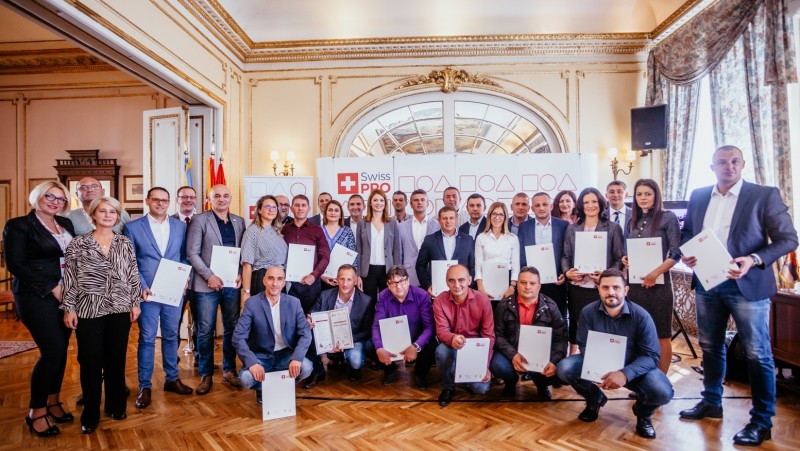

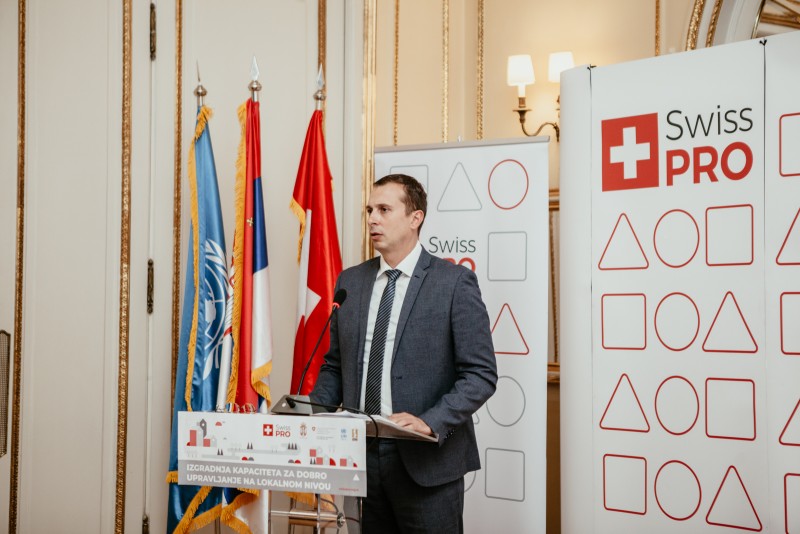
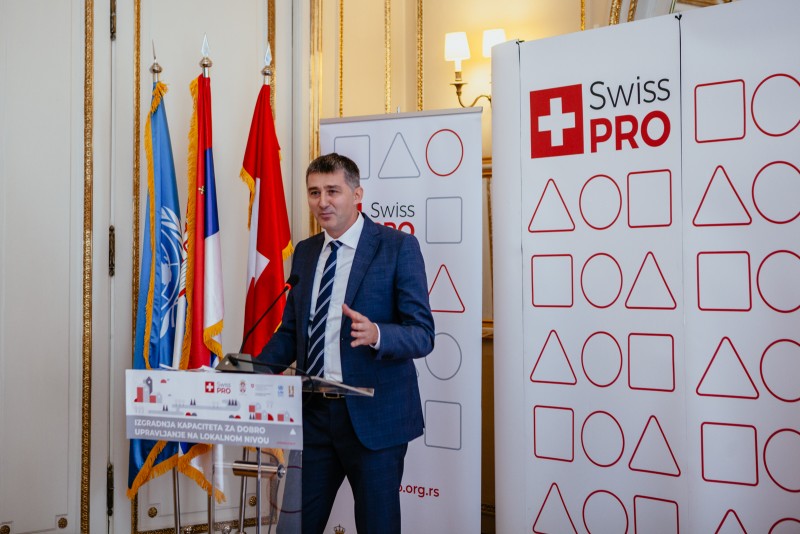
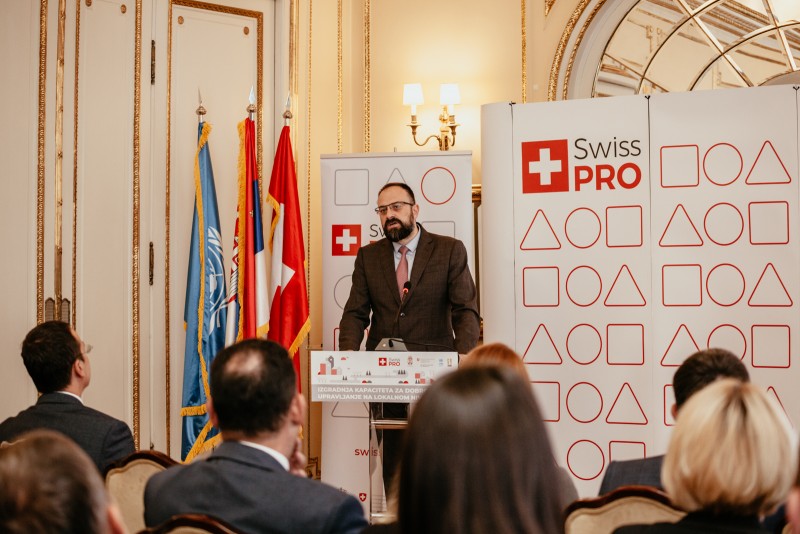
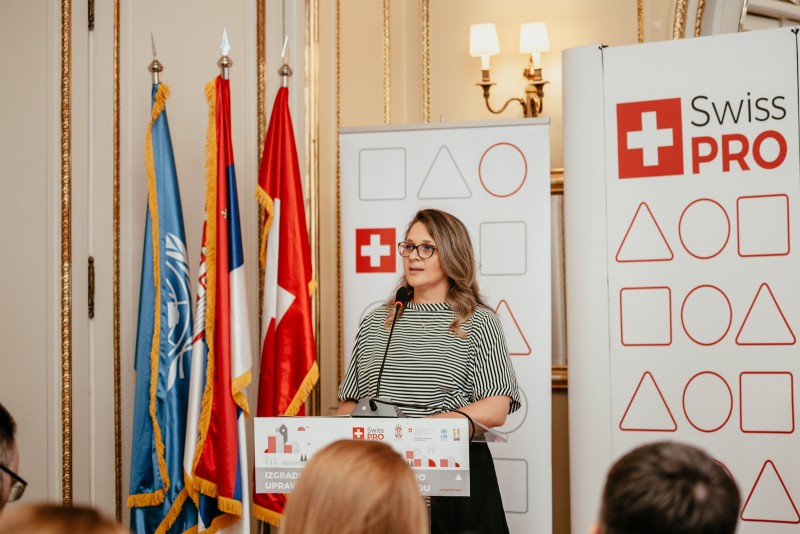
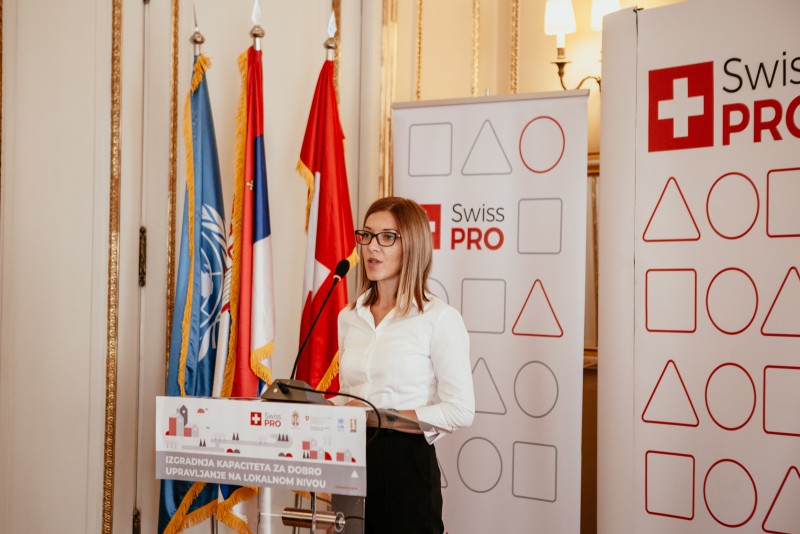
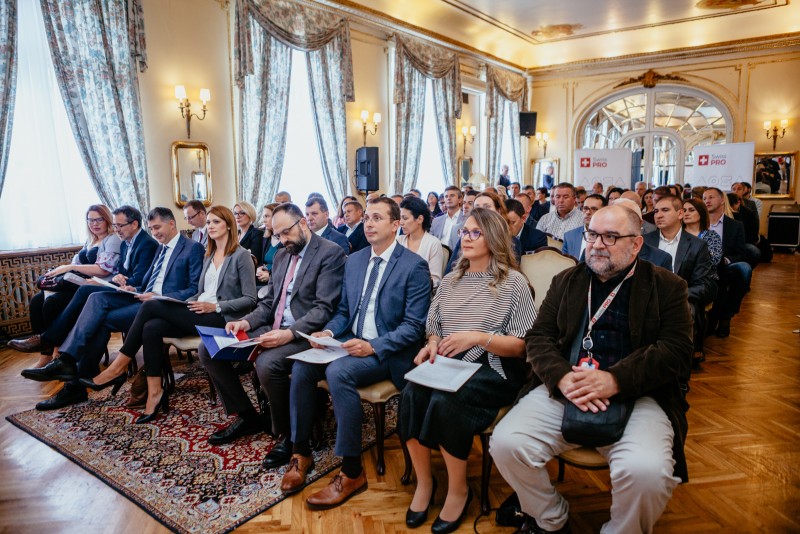
More Expert Staff for Good Governance in 23 Local Self-Governments in Serbia with the Support of Swiss Government
-
Belgrade, 25 September 2019
The event was marked by the award of certificates to 23 contact persons in local self-governments in South-East and South-West Serbia, who have successfully completed the Training of Trainers, organised within the Swiss PRO Programme, which is supported by the Swiss Government in cooperation with the Serbian Government. These cities and municipalities now have staff trained in sharing their good governance skills and knowledge.
Assistant Minister of Public Administration and Local Self-Governments Sanja Putnik emphasised the importance of advanced training in the application of good governance principles and of sharing experiences in applying them for successful public administration reform.
“There is a strong link between development and good governance, and all those who completed the training programme should continue sharing their knowledge and experiences and helping their peers in other municipalities that are making the first steps towards implementing good governance principles. Indeed, staff are key to the success of the entire public administration reform and that is why it is important that you have, and that you avail yourselves of, as many opportunities for quality professional development as possible. We are especially grateful to the Swiss Government and our partners in UNOPS for building, in the process, a concept that is fully tailored to Serbia’s context and for designing an effective tool for the implementation of the good governance principles at the local level,” said Putnik.
Having a base of people, professionals, who will be able to disseminate this specific and rare knowledge of good governance among public officials is essential for embedding good governance principles in institutions, said Petar Vasilev, the National Programme Officer of the Swiss Agency for Development and Cooperation.
“Thanks to the application of good governance principles, citizens can expect better, more efficient and fairer services tailored to their needs from the municipal and state administrations. These principles are extremely important, because they affect the everyday lives of people in the municipalities and the state in general. This is why Switzerland remains Serbia’s long-term partner in such reforms,” Vasilev said.
UNOPS Serbia Head of Programme Marko Vujačić said that mainstreaming good governance principles in the practices of the local self-governments would improve the work of the public sector and, more broadly, benefit society on the whole.
“Good governance is essential for achieving sustainable socio-economic development, which is based on the rule of law and respect for human rights. With the support of its partners, UNOPS has over the past decade implemented over 800 projects at the local level in which good governance has featured as an important segment,” Vujačić underlined.
The National Academy for Public Administration recognised the value of the Swiss PRO Programme and the Swiss Government’s support to this and previous programmes in the development of good governance in Serbia, said Dražen Maravić , the Acting Director of this state institution.
“We are extremely glad that Swiss PRO organised the Training of Trainers, because excellent lecturers are crucial guarantors of quality professional development of public sector staff. Some of the trainers who earned their certificates after undergoing the trainings within the Swiss PRO Programme have also been accredited by the Academy and I call on all others to use that opportunity and apply to the upcoming call for the accreditation of trainers,” Maravić said.
Speaking about the process of building the capacities of professional good governance centres at the local level, Swiss PRO National Programme Manager Ana Nedeljković Belja stressed the importance of the gradual and continuous building of human resources.
“The network of good governance contact persons established by Swiss PRO has expanded from 23 to 99 cities and municipalities. These officers are not only a genuine resource advising decision-makers on how to embed good governance principles at the local level, but also the local self-governments’ capital for fostering accountability and openness to the public,” Nedeljković Belja underlined.
Continuity in building the capacities of local self-governments as a value added of UNOPS and Swiss PRO was highlighted by Maida Kasumović, from the Sjenica Municipality, who completed the Training of Trainers.
“After we completed two-year training in good governance and established good governance centres in our local self-governments, Swiss PRO and the Smart Action team conducted this course to equip us with training skills and enable us to share our knowledge with our colleagues,” Kasumović underlined.
The certificates were awarded to the representatives of the following local self-governments: Babušnica, Bela Palanka, Bojnik, Bosilegrad, Bujanovac, Doljevac, Gadžin Han, Ivanjica, Knjaževac, Lebane, Medveđa, Nova Varoš, Novi Pazar, Preševo, Priboj, Prokuplje, Raška, Sjenica, Surdulica, Svrljig, Tutin, Vlasotince and Vranje.
The ceremony was also attended by representatives of state and international institutions, as well as public officials of 36 cities and municipalities, who have begun a new cycle of trainings implemented with the support of the Swiss and Serbian Governments.





